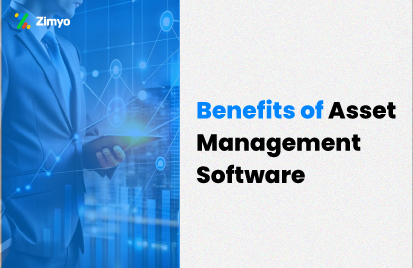It is important that employers and employees understand the Thailand annual leave law for legal reasons, fairness and healthy balance between work and life. This handbook covers the rules for annual leaves in Thailand, what employers must do, what employees can expect and good practices for managing such leaves.

What is Thailand Annual Leave Law?
The Thailand annual leave law for employees is mainly governed by the Labour Protection Act B.E. 2541 (1998) specifically Section 30 which ensures any employee who has worked for the same employer for at least 1 year gets at least 6 working days of paid leave annually.
Employees are ensured enough time off for rest and recovery by this law, reflecting that Thailand values fair labor practices and standards. This provision emphasizes importance placed on employee rights in Thailand and contributes to Thailand’s reputation for protecting employee benefits in the workplace.
Who is Eligible for Annual Leave?
- Employees who have worked for the same employer for 12 consecutive months are given 6 paid days of statutory annual leave.
- Workers who have worked for less than 1 year are not lawfully granted annual leave, but many businesses let them have pro-rata annual leave as goodwill.
Obeying the leave policy in Thailand that supports pro-rata leave can help to improve employee’s satisfaction and retention.
Explore user ready-made leave policy to draft guidelines for employees to take leaves for various reasons.
Employer Obligations Under Thailand Annual Leave Law
Employers must follow these requirements:
- Advance Leave Scheduling: Inform the employees well in advance of their leave dates. The law does give employers power to decide leave dates; however, it recommends a cooperative arrangement between both parties.
- Save proper leave records: Keeping detailed logs makes it easy to handle leave entitlements and prevent disputes.
- Unused leave pay on termination: Employees are supposed to be compensated in cash for any unused annual leave when their employment ends, as required by Section 67.
- Carry-forward unused leave: Only with the agreement of both the employer and the employee can unused annual leave be carried over to the next year. These details must be precisely documented.
Not adhering to these rules can result in fines of up to THB 20,000 (Section 146). Employers can follow all the rules easily by going through the Thailand Labour Law.
Legal Framework Overview
Section | Summary |
30 | Minimum 6 paid annual leave days after 1 year of service |
67 | Payment for unused leave on termination |
146 | Penalties for non-compliance (up to THB 20,000) |
Use this to reference the legal basis for leave laws- Official Thai labour regulations.
Calculating Annual Leave Entitlement
Service Duration | Annual Leave Entitlement |
Less than 12 months | Not mandatory; pro-rata possible |
12 months or more | Minimum 6 paid working days per year |
Employees may be offered more than 6 days by their company to draw top talent or ensure morale.
Generous time off policies, vacation and sick leave policies can make a company more attractive to employees and job seekers.
Carrying Forward Unused Leave
The Thailand annual leave law permits carry-over of unused leave if there is mutual agreement. Without such an agreement, unused leave may be forfeited.
Best practice:
- Clearly state carry-forward guidelines in the employee contract or HR manual.
- Prevent large accumulations by allowing carry forward for only 1–2 years.
- Track employee records with HR compliance tools in Thailand.
Types of Leaves in Thailand

Thailand’s labor law recognizes several types of leave beyond annual vacation, each designed to protect employees’ health, personal needs, and civic responsibilities. Here’s an overview:
1. Annual Leave (Vacation Leave)
What it is: Paid time off for rest and personal refreshment after a year of continuous service.
Rules:
- Minimum 6 paid working days per year after 12 months of service.
- Can be scheduled by the employer but should be mutually agreed upon.
- Unused leave must be compensated upon resignation or termination.
What it is: Paid leave when an employee is ill or injured.
Rules:
- Up to 30 paid working days per year.
- A medical certificate is required if the absence exceeds 3 consecutive days.
What it is: Leave for female employees during pregnancy and after childbirth.
Rules:
- 98 days total, including pre- and post-natal periods.
- First 45 days paid by the employer; the rest may be covered by Social Security.
4. Sterilization Leave
What it is: Leave granted for sterilization procedures for health or family planning reasons.
Rules:
- Fully paid leave, with medical certification.
5. Personal Business Leave
What it is: Paid leave for personal matters such as family emergencies, marriage registration, or funerals.
Rules:
- Minimum of 3 paid days per year.
- Additional unpaid days may be granted at the employer’s discretion.
What it is: Leave for conscription, military training, or periodic call-ups as required by Thai law.
Rules:
- Fully paid leave for the duration specified in the official government notice.
7. Training or Educational Leave
What it is: Leave for attending job-related education or training programs.
Rules:
- Typically unpaid, but may be granted at the employer’s discretion.
- Requests must be made in advance and approved by the employer.
Comparing Annual Leave to Other Leave Types in Thailand
Leave Type | Duration | Paid? | Notes |
Annual Leave | Minimum 6 days/year | Yes | After 1 year of continuous service |
Sick Leave | Up to 30 days/year | Yes | Medical certificate required if >3 days |
Maternity Leave | 98 days (45 paid by employer) | Partial Paid | Paid by Social Security for 45 days |
Public Holidays | ~13 days/year | Yes | Declared by government annually |
Best Practices for Employers
- Encourage employees to take their full leave to promote well-being.
- Annual leave policies must be clearly listed in contracts or employee guides.
- Use a leave management software Thailand to keep track of the number of working days. Keep employees aware of their leave entitlements and scheduling.
- Make sure your internal policy matches the requirements of labour compliance in Thailand to prevent any legal risks.
Conclusion
It is important for companies to obey the law to avoid facing problems and creating positive relationships at work. Properly managing leave means operations are managed smoothly and everyone feels looked after.
FAQ's ( Frequently Asked Questions)
Employers can schedule leave reasonably but cannot deny leave entitlement arbitrarily. Denial must be for legitimate business reasons.
No. While carry forward is permitted, it should be limited and documented.
Yes, such payments are considered income and are subject to Thai tax laws.
Only if the employment contract guarantees leave; otherwise, it’s not mandatory under current Thai law.





